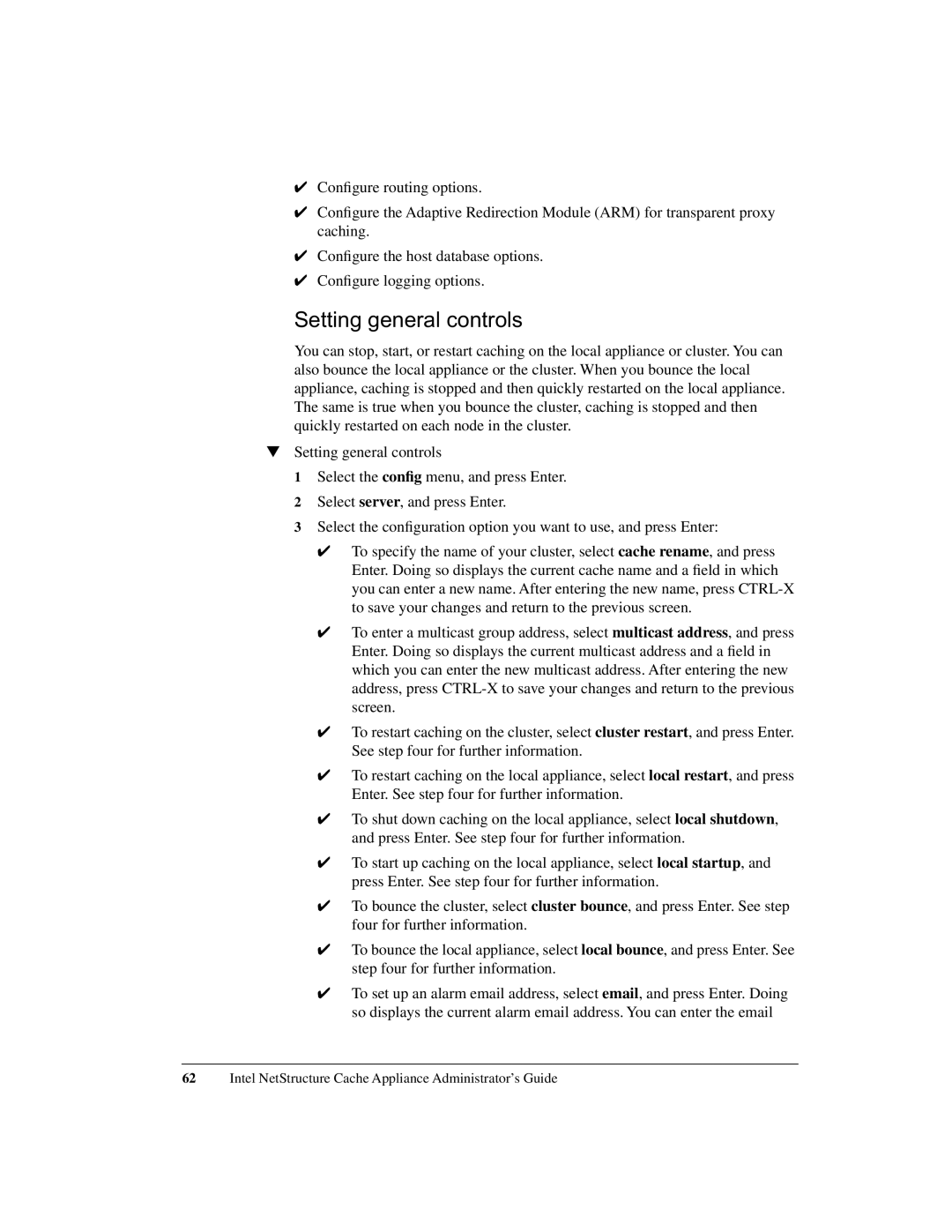✔Configure routing options.
✔Configure the Adaptive Redirection Module (ARM) for transparent proxy caching.
✔Configure the host database options.
✔Configure logging options.
Setting general controls
You can stop, start, or restart caching on the local appliance or cluster. You can also bounce the local appliance or the cluster. When you bounce the local appliance, caching is stopped and then quickly restarted on the local appliance. The same is true when you bounce the cluster, caching is stopped and then quickly restarted on each node in the cluster.
▼Setting general controls
1 Select the config menu, and press Enter.
2 Select server, and press Enter.
3 Select the configuration option you want to use, and press Enter:
✔To specify the name of your cluster, select cache rename, and press Enter. Doing so displays the current cache name and a field in which you can enter a new name. After entering the new name, press
✔To enter a multicast group address, select multicast address, and press Enter. Doing so displays the current multicast address and a field in which you can enter the new multicast address. After entering the new address, press
✔To restart caching on the cluster, select cluster restart, and press Enter. See step four for further information.
✔To restart caching on the local appliance, select local restart, and press Enter. See step four for further information.
✔To shut down caching on the local appliance, select local shutdown, and press Enter. See step four for further information.
✔To start up caching on the local appliance, select local startup, and press Enter. See step four for further information.
✔To bounce the cluster, select cluster bounce, and press Enter. See step four for further information.
✔To bounce the local appliance, select local bounce, and press Enter. See step four for further information.
✔To set up an alarm email address, select email, and press Enter. Doing so displays the current alarm email address. You can enter the email
62Intel NetStructure Cache Appliance Administrator’s Guide
